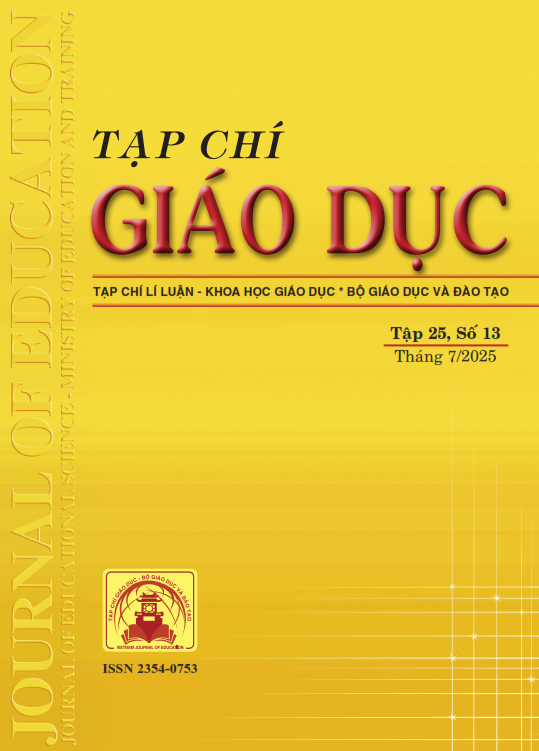Công bố khoa học về văn hóa nhà trường giai đoạn 2000-2024: Thống kê và phân tích dữ liệu từ Scopus
Tóm tắt
School culture is defined as the cultural environment in the school, or as the cultural nature of the teaching and learning environment. School culture is also considered a set of universally recognised basic principles in the school, which are applied to solve problems that arise in the organization when necessary, to ultimately adapt to external changes as well as create cohesion and integration within the school. This study provides extensive research insights into school culture, including authors, journals, countries and references using the Scopus database from 2000 to 2024 with 2900 studies on school culture. The researcher conducted a bibliometric analysis with the support of the Bibliometrix tool in Rstudio application and VOSviewer software. The analysis results are summarized through data tables and visualized with images. It is found out that the United States was the leading country in terms of publication volume, and the magazine “Teaching and Teacher Education” was the most prolific journal on school culture over the period in question. However, this study only exploits data from the Scopus database, so the analysis results may not cover all relevant published studies. Further studies can supplement data from other sources to increase the objectivity of the research results.
Tài liệu tham khảo
Aria, M., & Cuccurullo, C. (2017). bibliometrix: An R-tool for comprehensive science mapping analysis. Journal of Informetrics, 11(4), 959-975.
Chiu, W.-T., & Ho, Y.-S. (2007). Bibliometric analysis of tsunami research. Scientometrics, 73, 3-17. https://doi.org/ 10.1002/leap.1381
Đặng Thành Hưng (2016). Văn hóa tổ chức và văn hóa nhà trường trong quản lí giáo dục. Tạp chí Khoa học Giáo dục, 124, 10-12.
Ellegaard, O., & Wallin, J. A. (2015). The bibliometric analysis of scholarly production: How great is the impact? Scientometrics, 105(3), 1809-1831. https://doi.org/10.1007/s11192-015-1645-z
Nguyễn Duy Khánh (2023). Tổng quan văn hoá tổ chức qua phân tích trắc lượng thư mục bằng VOSviewer. Tạp chí Kinh tế và Phát triển, 311(2), 87-98. https://doi.org/10.33301/jed.vi.1206
Peterson, K. D., & Deal, T. E. (1998). How leaders influence the culture of schools. Educational Leadership, 56(1), 28-30. https://doi.org/10.3726/978-1-4539-1799-2/40
Pham, D. B., Tran, T., Le, H. T. T., Nguyen, N. T., Cao, H. T., & Nguyen, T. T. (2021). Research on Industry 4.0 and on key related technologies in Vietnam: A bibliometric analysis using Scopus. Learned Publishing, 34(3), 414-428. https://doi.org/10.1002/leap.1381
Pritchard, A. (1969). Statistical bibliography or bibliometrics. Journal of Documentation, 25, 348.
Vescio, V., Ross, D., & Adams, A. (2008). A review of research on the impact of professional learning communities on teaching practice and student learning. Teaching and Teacher Education, 24(1), 80-91. https://doi.org/ 10.1016/j.tate.2007.01.004
Wagner, C. R. (2006). The school leader’s tool for assessing and improving school culture. Principal Leadership, 7(4), 41-44.
Tải xuống
Đã Xuất bản
Cách trích dẫn
Số
Chuyên mục
Giấy phép

Tác phẩm này được cấp phép theo Ghi nhận tác giả của Creative Commons Giấy phép quốc tế 4.0 .












